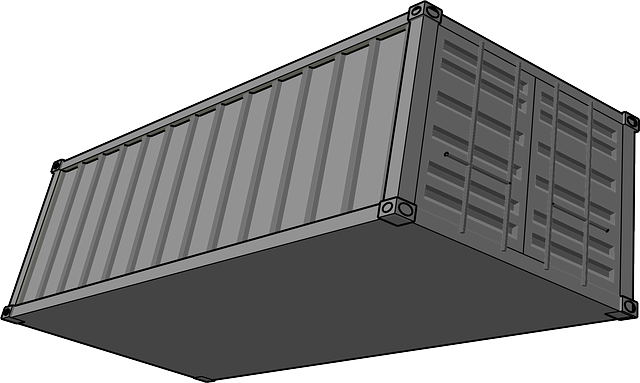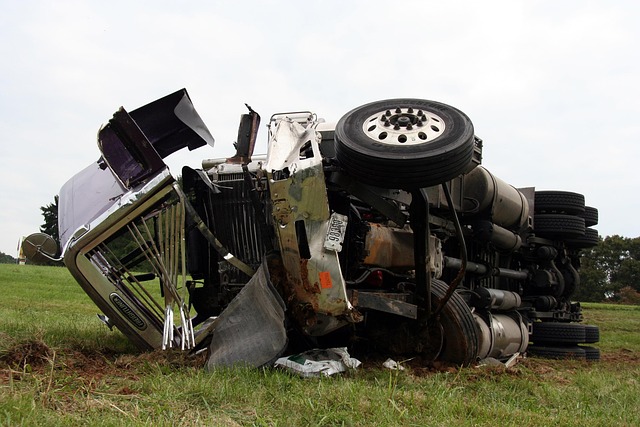Truck Repair Insurance: A Vital Shield for Fleet Managers. This specialized coverage is crucial for maintaining compliance and mitigating risks in trucking operations, offering broad support for vehicle issues from mechanical failures to accidents. By understanding key features like comprehensive repair, maintenance, and roadside assistance, fleet managers can ensure roadworthiness and avoid legal pitfalls. Identifying specific needs through risk assessment, establishing clear policies, leveraging technology, and conducting regular audits is essential for consistent compliance. Case studies demonstrate that proactive management, including robust truck repair insurance policies, significantly reduces risks and operational costs.
In the dynamic landscape of trucking, ensuring fleet-wide compliance with coverage requirements is paramount. This comprehensive guide delves into the intricacies of truck repair insurance, offering a detailed overview that every operator needs. From understanding the nuances of policies to identifying specific requirements for fleet operations, we provide practical strategies for consistent compliance. Additionally, real-world case studies highlight successful implementations of strict compliance policies, providing valuable insights for operators aiming to navigate this crucial aspect of their business efficiently.
Understanding Truck Repair Insurance: A Comprehensive Overview

Truck repair insurance is a vital component of maintaining fleet compliance and minimizing operational risks. It provides financial protection for businesses in the event that their trucks require unexpected repairs or maintenance. This type of insurance goes beyond traditional coverage, offering comprehensive support for various vehicle-related issues, from mechanical failures to accidents. By understanding the intricacies of truck repair insurance, fleet managers can make informed decisions to ensure their operations run smoothly and efficiently.
A key aspect of truck repair insurance is its ability to cover a wide range of repairs and maintenance costs. This includes expenses related to engine overhauls, body damage, and routine servicing. Many policies also offer roadside assistance, providing peace of mind should a truck break down during a journey. With the ever-changing regulations regarding fleet operations and vehicle maintenance, having the right insurance in place is essential. It allows businesses to navigate potential legal issues and financial burdens associated with non-compliance, ensuring their trucks are always roadworthy and meeting industry standards.
Identifying Coverage Requirements for Fleet Operations

Identifying the specific coverage requirements for fleet operations is a crucial step in ensuring compliance and mitigating risks. This process involves a comprehensive understanding of the unique needs of your trucking business, including various legal obligations and potential hazards associated with on-the-road operations. One key aspect to consider is truck repair insurance, which plays a vital role in protecting against unexpected mechanical failures or accidents that may require immediate vehicle servicing.
By evaluating the types of vehicles in your fleet, their intended uses, and the geographical areas they operate in, you can accurately assess the risks and select appropriate coverage options. This includes understanding the regulatory frameworks and industry standards related to insurance for commercial trucks, ensuring that your chosen policies align with legal mandates while also addressing potential gaps in protection.
Strategies for Achieving Consistent Compliance Across Your Fleet

Achieving consistent compliance across your fleet requires a multi-faceted approach. Start by implementing clear, comprehensive policies and procedures that outline expected behaviors and responsibilities regarding truck repair insurance coverage. Regularly communicate these guidelines to all drivers and maintenance personnel to ensure everyone understands their roles and the importance of adherence.
Utilize technology to streamline processes. Digital management systems can help track repairs, maintain records, and monitor compliance in real-time. Regular audits and reviews are also crucial. Conduct periodic checks on fleet vehicles to verify coverage and make any necessary adjustments. This proactive approach ensures that every truck is protected by the appropriate insurance, reducing risks and ensuring smooth operations.
Case Studies: Successful Implementation of Strict Compliance Policies

Many companies have successfully navigated the complex landscape of fleet management by implementing stringent compliance policies, particularly in areas like truck repair insurance. Case studies highlight that a proactive approach to ensuring every vehicle is adequately covered can significantly reduce risks and operational costs. One such example involves a large trucking corporation that encountered frequent claims due to inadequate maintenance coverage. They introduced a comprehensive policy mandating regular inspections and repairs, with specific provisions for truck repair insurance, leading to a notable decrease in costly unexpected repairs and associated downtime.
This transformation was achieved through detailed planning, involving collaboration between the operations and risk management teams. They analyzed existing policies, identified gaps, and tailored solutions to meet regulatory requirements while considering the unique needs of their fleet. The successful implementation resulted in improved safety standards, enhanced vehicle longevity, and better financial control over maintenance expenses, setting a benchmark for other businesses aiming to achieve fleet-wide compliance with truck repair insurance and related coverage requirements.
Ensuring fleet-wide compliance with coverage requirements is paramount for any trucking operation. By understanding the nuances of truck repair insurance, identifying specific needs, and implementing consistent strategies, businesses can mitigate risks and optimize their operations. Case studies demonstrate that strict compliance policies not only meet legal obligations but also enhance safety and efficiency. Embracing these practices is essential for maintaining a competitive edge in today’s transport industry, ensuring both cost-effectiveness and peace of mind.
